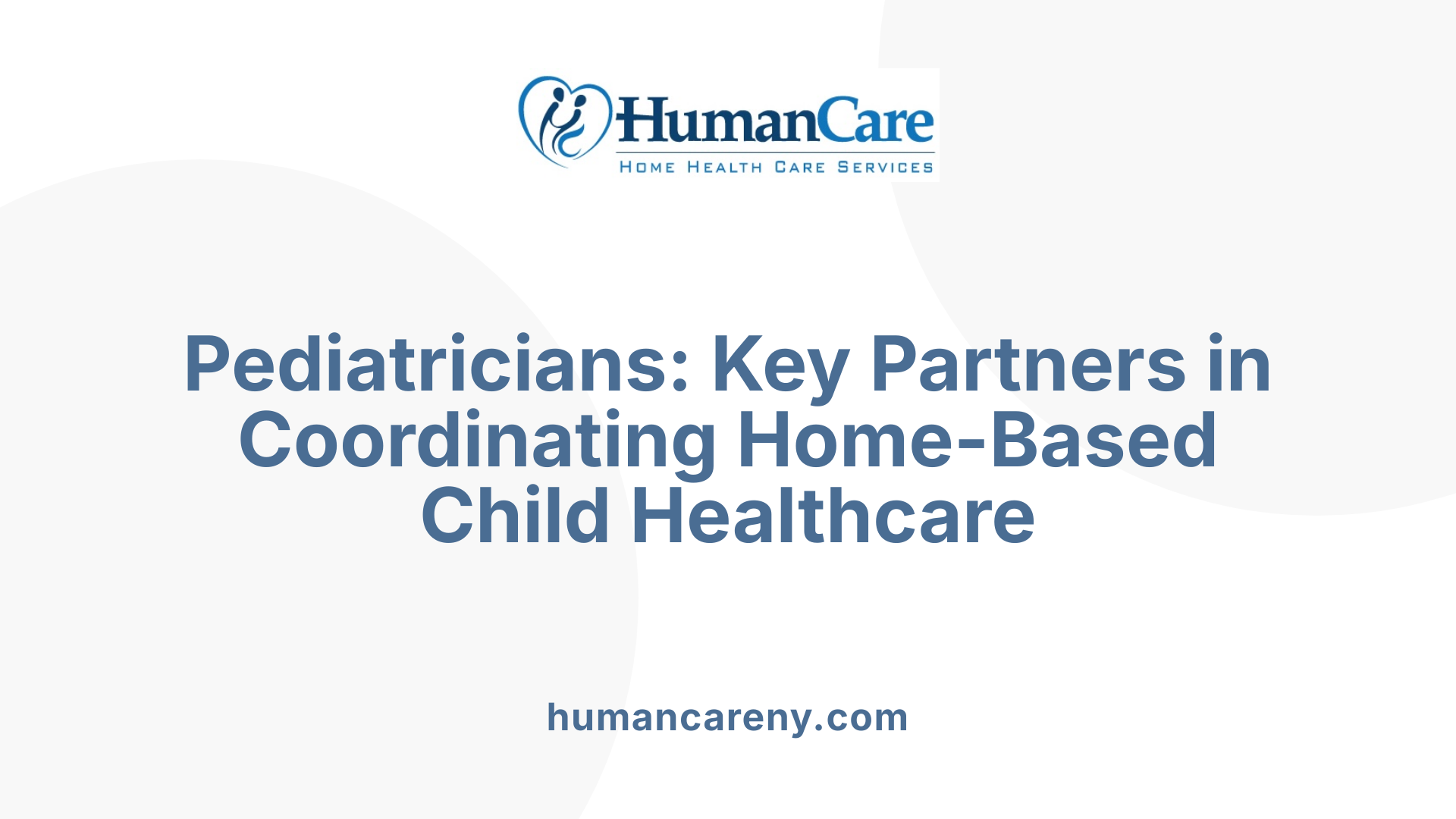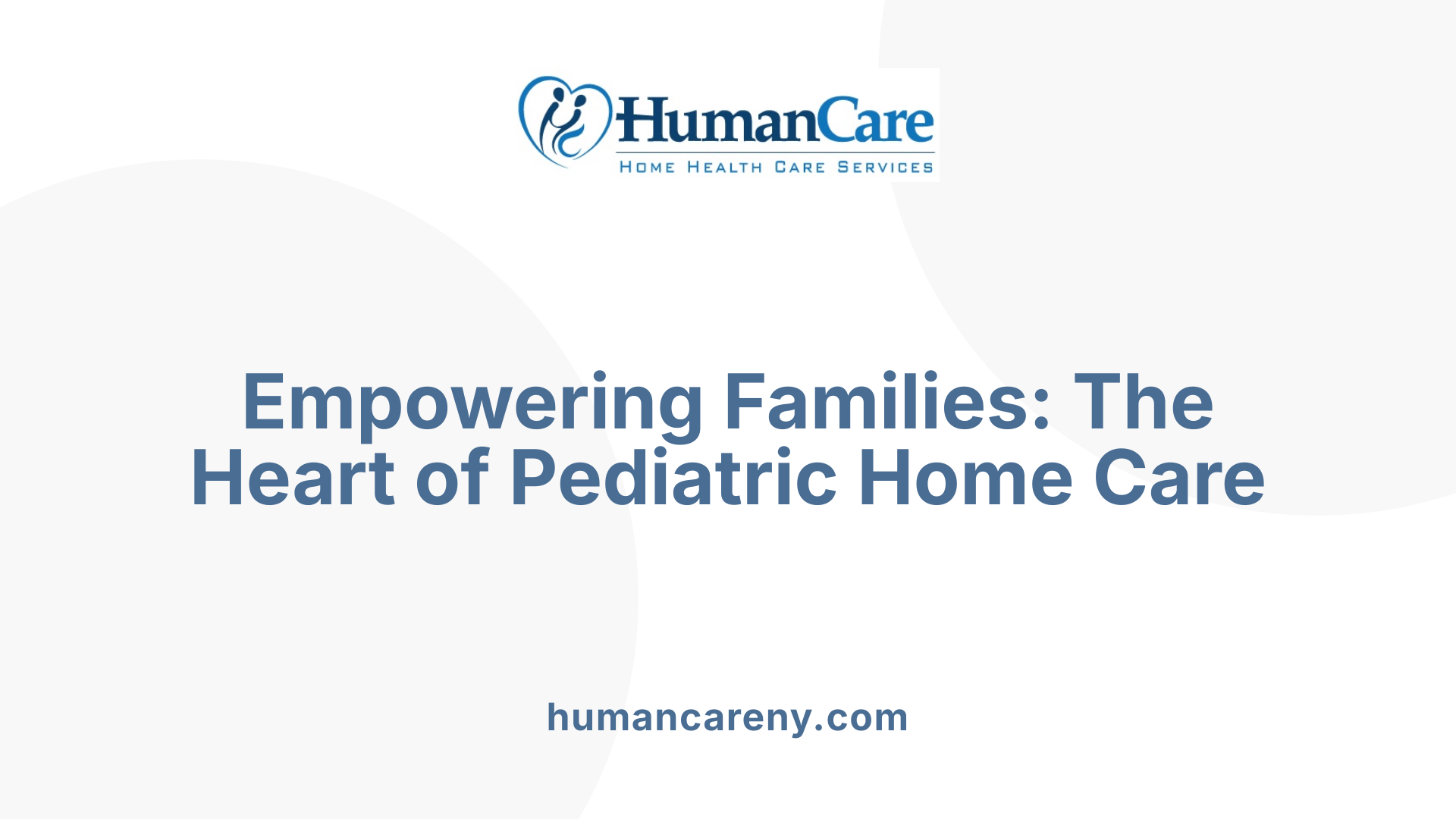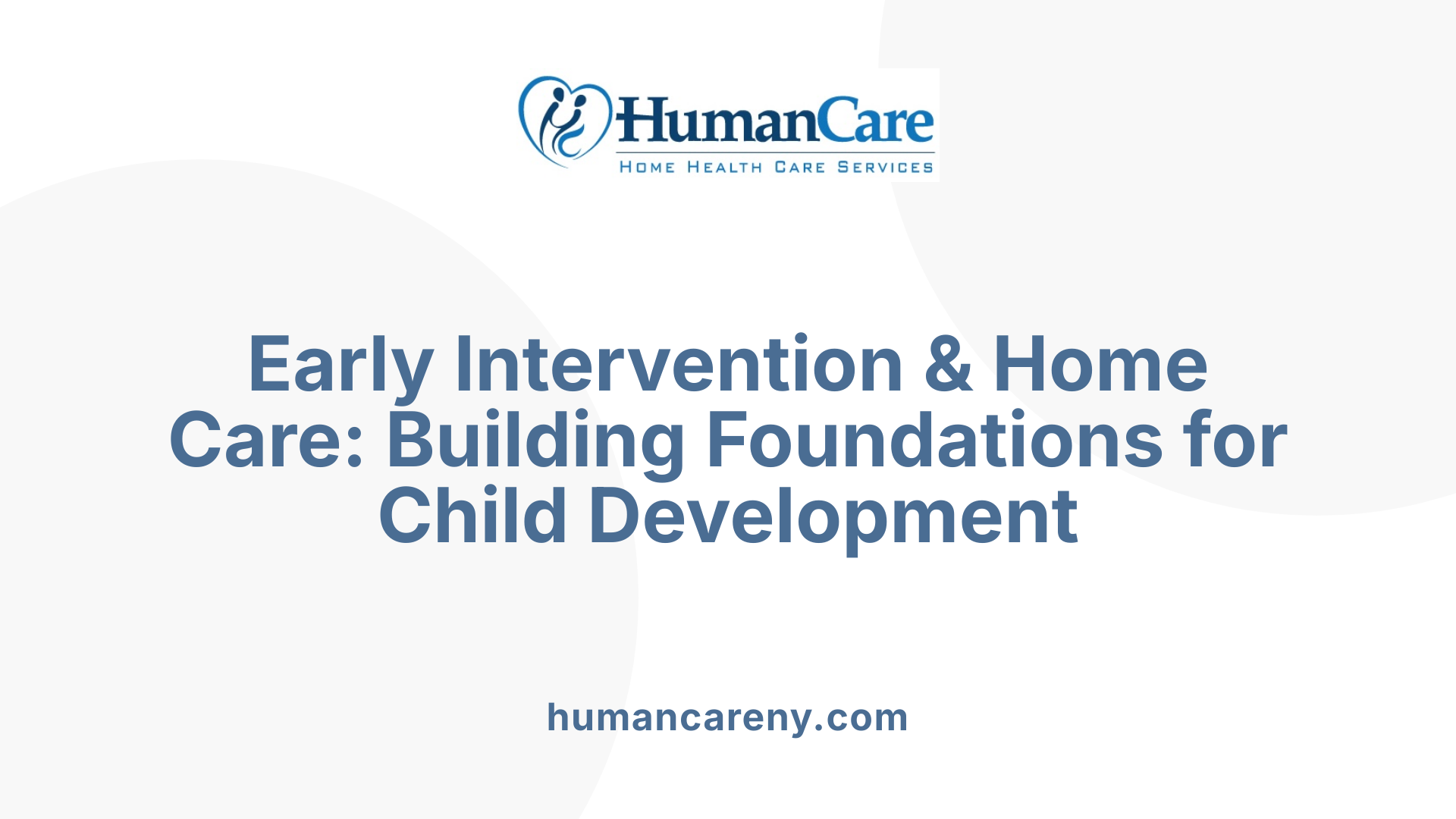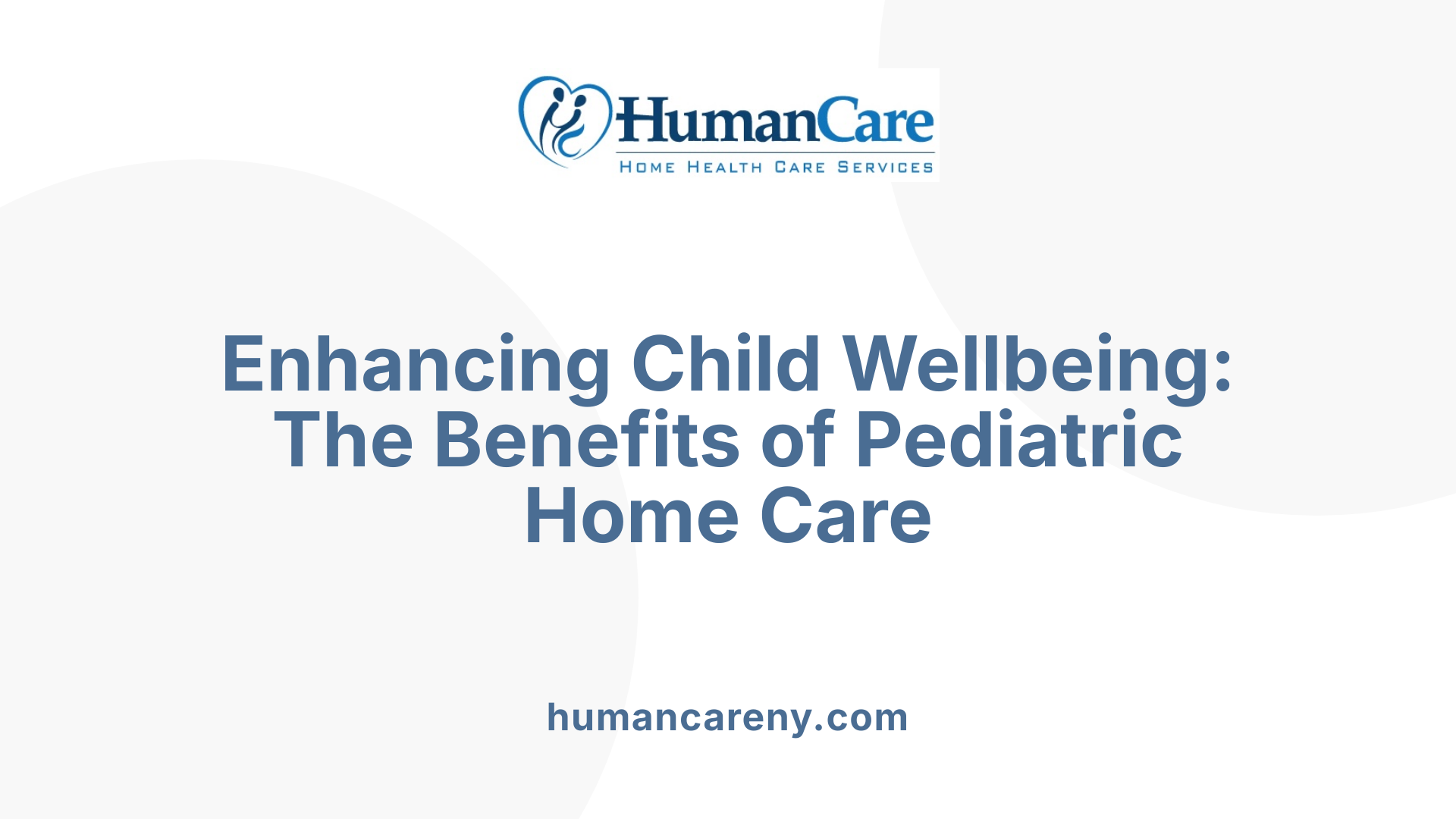Understanding Pediatric Home Care in Early Intervention
Pediatric home care plays a vital role in supporting children with special health care needs, chronic conditions, or developmental delays. By delivering personalized medical and therapeutic services in the comfort of a child's home, it facilitates quicker recovery, continuous care, and vital early intervention for optimal development. This article explores the multifaceted role of pediatric home care in early intervention, illustrating benefits for both children and families, the responsibilities of health care providers, and the systemic infrastructure supporting this critical service.
Comprehensive Pediatric Home Care Services Tailored to Child Needs
What is the scope of pediatric home health care?
Pediatric home health care provides essential medical and supportive services within the comfort of a child's home. It is designed to help children recover faster from treatments and often reduces hospital readmissions. This care promotes better sleep and healing by allowing children to stay in familiar surroundings, which can also help them maintain routines such as attending school.
Which conditions are typically served by pediatric home care?
Pediatric home care caters mainly to children with chronic or severe health conditions. These include complications from prematurity, cardiac disease, neurodegenerative disorders, genetic anomalies, childhood cancers, and children with complex medical needs like ventilator dependence. Children with developmental delays or disabilities may also benefit from early intervention services at home.
What range of services do pediatric home care agencies provide?
Home care agencies offer a diverse range of services tailored to individual needs, including:
- Nursing evaluations and medication administration
- Occupational, physical, and speech therapies
- Oncology treatments and infusion therapies
- Palliative and hospice care
- Assistance with medical equipment such as oxygen supplies, ventilators, and hospital beds
These services support both medical treatment and developmental progress.
How are personalized care plans developed and maintained?
Personalized care plans are central to effective pediatric home health care. These plans are tailored to the child's evolving medical and developmental needs through ongoing assessments and collaboration between home health providers and the child's pediatrician. This dynamic approach ensures that treatments are adapted promptly, enhancing safety, comfort, and outcomes for the child.
| Aspect | Description | Impact |
|---|---|---|
| Scope | Home-based medical and supportive care for children with complex and chronic conditions | Faster recovery and reduced hospital stays |
| Conditions Served | Prematurity-related issues, cardiac and neurodegenerative diseases, genetic disorders, childhood cancers | Addresses specialized medical needs |
| Services Provided | Nursing, therapy services, oncology, infusion therapy, medical equipment support | Comprehensive support tailored for medical and developmental needs |
| Personalized Care Plans | Continual assessment and collaboration with pediatricians | Adaptable treatment ensuring safety, comfort, and effectiveness |
The Central Role of Pediatricians and Care Coordination

How Are Pediatricians Involved in Home Care?
Pediatricians serve as the cornerstone in planning, initiating, and maintaining pediatric home health care (PHHC), especially for children with medical complexity (CMC). They provide essential referrals needed before home care begins and take part in hospital discharge planning discussions to ensure appropriate home care options are identified early.
What Is the Importance of Referral and Discharge Planning?
Before a child can receive home health services, a formal referral from a pediatrician is mandatory. Discharge planning from the hospital usually involves detailed conversations among the pediatrician, specialists, families, and home care providers to develop a tailored care plan suitable for the child's specific needs at home.
What Supports Effective Care Coordination?
The success of home health care hinges on a well-established care coordination infrastructure. This infrastructure includes skilled home health providers working in concert with pediatricians and families, ensuring timely communication and seamless transitions between hospital and home settings. It involves continuous assessment and adjustment of care based on the child's evolving health.
How Does Collaboration Between Parents and Providers Enhance Care?
Families bring invaluable knowledge through lived experience, making parent-provider collaboration vital. Pediatricians and home care teams rely on open communication and shared decision-making with families to address ongoing needs effectively. This partnership reduces burden on families and improves safety and comfort for children receiving care at home.
Together, these elements create a comprehensive and connected system that supports children’s health and wellbeing outside the hospital, making pediatricians essential advocates and coordinators in pediatric home health care.
Family-Centered Care: Empowering Families in Complex Pediatric Care

Families as Primary Caregivers
Families are the cornerstone of pediatric home health care and early intervention services. In the U.S. alone, approximately 5.6 million children with special health care needs rely on their families to provide around 1.5 billion hours of home health care annually. This immense caregiving role goes beyond typical parenting tasks, often involving complex medical and therapeutic responsibilities that only the family's lived experience can provide.
Family-Professional Partnerships
Over the past decades, there has been a significant policy shift towards recognizing families as equal partners in care. This has led to stronger family-professional collaborations across different systems, fostering a family-centered care approach. Successful partnerships involve shared decision-making, open communication, and mutual respect, which help personalize treatment plans and improve health outcomes for children with complex needs.
Challenges Families Face
Despite their critical role, families frequently face substantial challenges. Many report feeling invisible within the healthcare system and encounter fragmented care coordination, where they must act as the primary communicators across multiple providers. Insurance coverage often falls short, forcing families to navigate complex processes while dealing with high out-of-pocket expenses. This burden can significantly impact the family's well-being and the child's continuity of care.
Importance of Family Expertise and Advocacy
Families bring invaluable expertise to the table through their deep understanding of their child’s evolving needs. Their advocacy ensures that care is tailored and responsive. Recognizing and supporting these skills is essential for designing effective home health and early intervention services. Empowering families through education, peer support, and collaborative planning not only improves the child's health outcomes but also strengthens the entire caregiving ecosystem.
Early Intervention Services and Pediatric Home Care Integration

What Are the Principles Behind Early Intervention Programs?
Early intervention programs focus on nurturing relationships and promoting family understanding of infant and toddler development. They are family-centered and multidisciplinary, aiming to support growth, development, and well-being for children with developmental delays or disabilities. These programs embody principles of accessibility, continuity, cultural sensitivity, and coordination, aligned closely with the medical home model.
Where Are Early Intervention Services Delivered?
Services are delivered flexibly in various settings, including the child's home, childcare facilities, and community environments. This allows interventions to occur in natural surroundings where children learn and grow, making treatment more relevant and effective. Providers may offer assistive technology, family training, counseling, nursing, occupational therapy, speech-language pathology, and nutrition counseling, among other specialized support.
What Are the Eligibility Criteria and How Are Children Evaluated?
Eligibility is determined based on developmental delays: a child under 24 months with over 33% delay in one area or, for children 24 months or older, a 50% delay in one area or 33% delay in two or more areas. The evaluation involves a clinical review of health history, parental reports, and assessments across cognitive, motor, sensory, social/emotional, and adaptive domains.
How Do Medical Homes Collaborate With Early Intervention and Community Resources?
Primary healthcare providers play a crucial role by participating in assessment, planning via Individualized Family Service Plans (IFSP), and collaborating closely with community resources. This partnership fosters seamless communication and coordination across healthcare providers, early intervention services, and families. Such collaboration ensures that children with special health care needs receive tailored, consistent, and comprehensive support within their home environments.
This integration of early intervention services with pediatric home care enhances safety, developmental progress, and family empowerment, representing a holistic approach that respects the family's central role in care.
| Aspect | Details | Significance |
|---|---|---|
| Program Principles | Family-centered, multidisciplinary, nurturing development | Supports holistic child and family well-being |
| Service Settings | Home, childcare, community | Natural environments boost learning and comfort |
| Eligibility Criteria | Specific developmental delay percentages | Ensures timely, appropriate service allocation |
| Evaluation Process | Clinical review + parental input + assessments | Comprehensive understanding of child needs |
| Collaboration | Primary care providers, IFSP, community resources | Enhances coordination and care continuity |
Benefits of Pediatric Home Care in Supporting Child Development and Quality of Life

Quicker recovery and reduced hospitalization
Pediatric home health care significantly aids children in healing more rapidly after treatments. Being in the comfort of their home allows children to sleep better and recuperate faster compared to hospital stays. This often results in reduced hospital readmissions, providing a gentler and more personalized recovery environment, especially important for children with chronic or severe health conditions.
Reduced stress and infection risk
Home care reduces the stress children and families face in hospital environments. Medical care administered at home limits exposure to hospital-acquired infections, enhancing safety for vulnerable children. The familiar surroundings contribute to emotional comfort, supporting overall well-being during recovery.
Maintenance of routines such as schooling
One of the major advantages of pediatric home care is preserving the child’s normal routines, including attending school and participating in daily activities. This continuity supports social development and minimizes disruptions that can occur with frequent hospital visits or stays, fostering a sense of normalcy and stability.
Cost-effectiveness and convenience
Providing medical and therapeutic services at home is often more cost-effective than hospital care by potentially decreasing lengthy admissions and emergency visits. Families benefit from the convenience of receiving qualified care where their child feels most comfortable, reducing travel and coordination burdens. This model also allows for flexible, tailored treatment plans that evolve with the child's needs.
Together, these benefits enhance the child's quality of life by blending comprehensive medical care with the nurturing environment of home, supporting both health and development while easing the family's caregiving challenges.
Systemic Challenges and the Future of Pediatric Home Care in Early Intervention
What Barriers Hinder Access to Pediatric Home Health Care?
Families often face significant barriers in accessing pediatric home health services. Insurance coverage is frequently inadequate, with many parents navigating complex and fragmented insurance systems. High out-of-pocket costs are common, making necessary supplies and services difficult to obtain. Economic, cultural, and geographic factors further complicate access to care, creating disparities for vulnerable populations.
How Does Fragmented Care Coordination Affect Families?
Care coordination remains a major challenge, as families frequently act as the primary coordinators among multiple healthcare providers and agencies. This fragmented system burdens families with managing appointments, treatments, and communication, often without being recognized as equal partners in care planning. Such fragmentation can delay intervention and complicate ongoing care management.
Why Is Interagency Collaboration Essential for Improvement?
Improving pediatric home care outcomes relies heavily on fostering stronger interagency relationships and longitudinal care coordination. Integrating medical homes, early intervention programs, education systems, and community resources creates a seamless support network. This collaborative approach reduces the strain on families and ensures timely, comprehensive care tailored to the child’s evolving needs.
What Are Emerging Best Practices and Policy Directions?
Best practice models emphasize family-centered care, natural learning environments, and coaching techniques to enhance early intervention efficacy. Policy efforts focus on expanding access to services under laws like IDEA Part C and promoting equity through culturally effective care. Continued research highlights economic benefits, supporting initiatives that streamline coordination, improve insurance coverage, and empower families as active care partners.
This evolving landscape points towards a future where integrated systems and patient-centered policies advance pediatric home health care, ensuring children with special health needs receive timely, dignified, and effective support in their home environments.
Looking Ahead: Strengthening Pediatric Home Care and Early Intervention
Pediatric home care is a cornerstone in the early intervention landscape, blending medical expertise, family empowerment, and individualized support to improve outcomes for children with special health care needs and developmental challenges. While significant progress has been made in expanding services and embedding family-centered approaches, ongoing efforts are essential to overcome systemic barriers, improve care coordination, and foster collaborative partnerships among providers, families, and agencies. Enhancing awareness, streamlining access, and applying evidence-based practices will ensure children receive the compassionate, consistent care necessary to thrive at home and in their communities.
References
- Pediatric Home Health Care — What You Need to Know
- The Pediatric Home Health Care Process: Perspectives of ...
- The Primary Healthcare Providers Role in Early Intervention
- Not Just Along For The Ride: Families Are The Engine That ...
- Pediatric Home Health Care: What You Should Know
- Early Intervention, IDEA Part C Services, and the Medical Home



